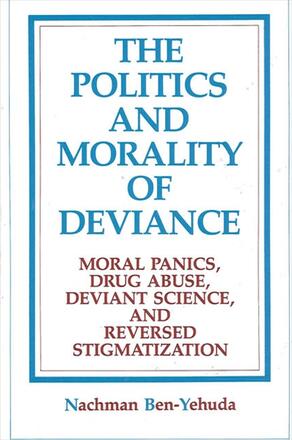
The Politics and Morality of Deviance
Moral Panics, Drug Abuse, Deviant Science, and Reversed Stigmatization
Alternative formats available from:
Description
The Politics and Morality of Deviance develops a theoretical framework and then applies it to four different and specific case studies in an explicit attempt to put the sociology of deviance back into mainstream sociology. It argues that deviance should be analyzed as a relative phenomenon in different and changing cultures, vis-a-vis change and stability in the boundaries of different symbolic/moral universes. It also argues that the legitimization of power should be thought of in terms of a moral order that in turn defines the societal boundaries of different symbolic/moral universes.
Mills' concept of motivational accounting systems is utilized throughout the text in order to illustrate how the micro and macro levels of analysis can be integrated.
Nachman Ben-Yehuda is Senior Lecturer at Hebrew University, Jerusalem.
Reviews
"First, I like the fact that the author has tackled an extremely significant yet basically neglected area in sociology—the interpenetration of deviance and politics, more specifically, the political elements in deviance. Second, I like his use of 'motivational accounting systems,' which show that society is not a single moral universe whose members share the same definition of deviance and respectability, but a number of moral universes whose members explain actions in radically and, to a degree, incompatible ways. And third, Ben-Yehuda is genuinely concerned about what is one of the most important of sociological problems: the articulation between the micro or individual level and the macro or societal and institutional level.
"In Ben-Yehuda's book, the 'common thread' is how intrinsic political elements, and subjective definitions of behavior as political in nature, operate with respect to deviant behavior. To me, this is novel, it is path-breaking, and it is significant." — Erich Goode, SUNY, Stony Brook